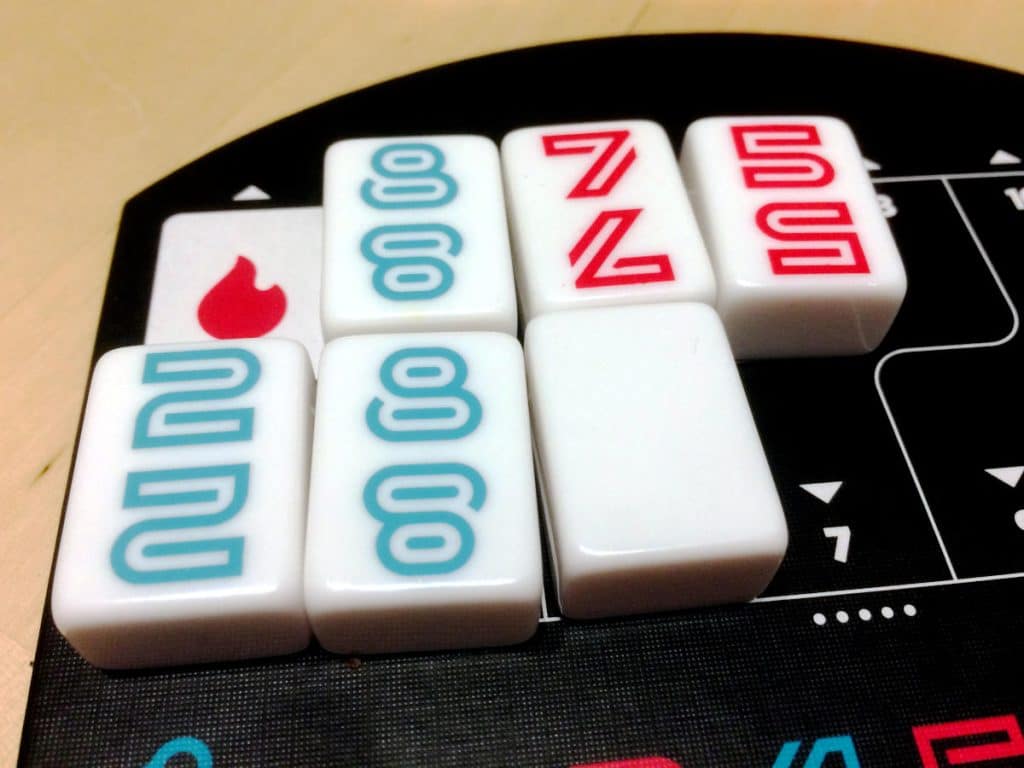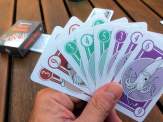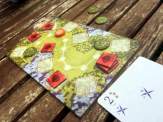I’ve written about my love of trick-taking games and the genre in general many times. Just check the archives… Now that my game group has also gotten into the genre, I’ve discovered more and more games that take this ancient card game mechanism to new heights. They apply new twists and add different mechanisms to create really exciting new titles. In this article, I want to share with you which ones I am particularly excited about.
Listen to the Audio Version
Intro Music: Bomber (Sting) by Riot (https://www.
Eternal Springtime by | e s c p | https://www.
https://escp-music.
The first thing that many modern trick-taking games do, is remove the limitation of a fixed player count. While I have grown up with traditional trick-taking games that require a specific number of players, usually three or four, modern games can often be played with a wide range of players. Not only can you play them with only two of you, but they often go up to as many as five or six. That flexibility alone is often invaluable. Rather than choosing a trick-taking game based on how many of you there are, you have the choice of multiple games that work as well at a lower player count as they do when the rest of the game group has turned up and there are now more of you.
However, modern trick-taking games go a step further. So let me introduce you to a number of games I haven’t played yet, but am very excited about and tell you why I am so excited about them.
Inflation!
While the player count for Inflation! is slightly more restricted, requiring three or four players, this game introduces a really interesting twist to traditional trick-taking. There is still the concept of suits and having to follow suit. You also have the usual rule where the highest card wins the trick.
However, tricks aren’t removed once scored. Instead, players keep the card they played in front of them and place the next card they play to the left of it. So in the second trick, everyone will have two cards in front of them.
The second card represents the 10s and the first card the units. So if you play a 9 in the first trick and then a 1 in your second, you now have a 19. That means someone who played a 1 in the first trick and a 2 in the second, which gives them a 21, beats your 19.
The game is supposed to emulate currency hyperinflation, as some countries have seen in the past, and it makes for a really interesting twist. So while your low card at the beginning of the round might lose you that trick, higher cards later on can win you future tricks. I can’t wait to see how it plays.
Charms
The trick-taking game Charms twists the mechanism in a very interesting way. It deconstructs the concept of a single card having a value and a suit. Now you have two decks of cards: one has only suits, represented by colours, while the other only has numeric values. At the beginning, you play two cards from your hand: one suit card and one value card. In subsequent tricks, you play a single card: either a suit card or a value card. So from trick to trick you can only change one property.
I can imagine that this twist creates a lot of new interesting challenges for players. You might have a high-value card in the lead suit in your first trick. However, in the next trick, you only have value cards left, so you have to play a lower card and thereby lose the trick. I can see how this game will really mess with veteran trick-taking players’ brains, but in a good way.

Nokosu Dice
Of course, trick-taking games don’t have to just use cards. Nokosu Dice demonstrates this beautifully. It adds coloured dice into the mix. The colours of the dice match the colours of the cards, and of course, the colours are the suits. Not only that, the game also introduces a drafting mechanism. The dice are rolled at the beginning and then players draft them.
You then play either a card or a dice into a trick. The winner of a trick scores one point. Once a hand has been played, you can gain bonus points if the last dice you kept back matches the number of tricks won. There is also a way to bet that you won’t win any tricks to score even more points.
I love the idea that the dice values are a way of working towards a specific number of tricks. Given that the dice and number of tricks won are public knowledge, other players can try and thwart you and either let you win more tricks than you need or deny you tricks they might have otherwise let you win. At the same time, everyone else also wants to gain points.
It sounds like a really interesting twist that adds a lot of new ways of player interaction and table talk, which I love.
Tiger and Dragon
Of course, trick-taking games don’t need cards at all. Using tiles, resembling domino pieces, is another way of playing that works really well. In fact, people who find it hard to hold cards in their hands might prefer to line up the tiles in front of them on the table instead.
Tiger and Dragon is the game I’m thinking of here. I’ve played it a few times now and will review in due course, so keep an eye out for that. Rather than being a true trick-taking game, it’s more of a ladder-climbing game. In fact, the goal is to be the first player to empty your hand and depending on the tile you finished the round with, you score a certain number of points. So you could even call it a race game. Once a player reaches a certain point goal, the game ends.
It’s the sort of game you’re better off starting to play after only a very brief introduction, rather than trying to explain all the rules at the start. As you play your tiles, things become clear very quickly. It’s also such a wonderfully tactile game. Plonking down chunky tiles is a lot more satisfying than slamming down cards.
What About You?
So now I want to know if you have any favourite trick-taking games. Are there any that have an interesting twist or do something in a different and clever way? If so, what are they? Also, who do you normally play trick-taking games with, if anyone? As always, please let me know in the comments below. I’d love to hear from you.
For behind-the-scenes updates, branded merchandise, and more, please support the blog.
Useful Links
- other trick-taking articles and reviews: https://tabletopgamesblog.
com/ tag/ trick-taking-games/ - Inflation!: https://boardgamegeek.
com/ boardgame/ 282255/ inflation - Charms: https://boardgamegeek.
com/ boardgame/ 172844/ charms - Nokosu Dice: https://boardgamegeek.
com/ boardgame/ 294693/ nokosu-dice - Tiger and Dragon: https://boardgamegeek.
com/ boardgame/ 349992/ tiger-and-dragon
Audio Version
Intro Music: Bomber (Sting) by Riot (https://www.
Eternal Springtime by | e s c p | https://www.
https://escp-music.
Playlist
These are the songs I listened to while I was writing this topic discussion article:






